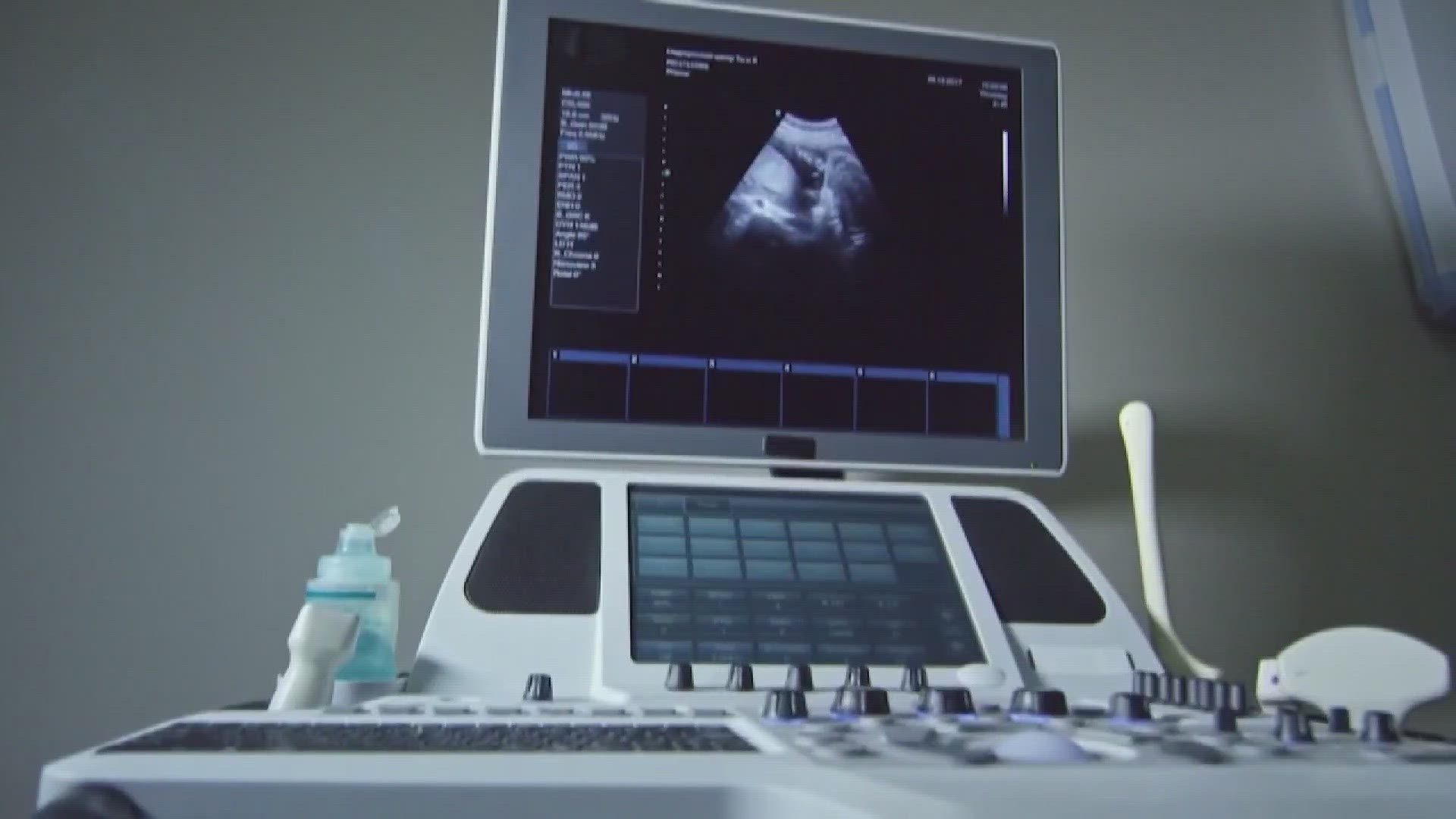KNOXVILLE, Tenn. — Saturday will mark a year since the landscape for abortion treatment providers changed forever in the U.S.
In a 6-3 decision, the Supreme Court declared that Mississippi's 15-week abortion treatment ban was unconstitutional, effectively undoing the Roe. v. Wade precedent.
The decision enacted Tennessee's trigger law, which added additional restrictions on abortion treatments. Later, the state effectively banned providers from giving them unless under specific circumstances. A specialist in high-risk pregnancies said caregivers are now having to navigate the state's law as part of their job.
"It's so exciting to watch someone's eyes light up when they hear a heartbeat and realize, 'That's not my own, that's not the same rhythm. It's faster, that's my baby,'" Dr. Kimberly Fortner, a high-risk OBGYN at the University of Tennessee Medical Center, said. "Human procreation is not a perfect process, and there is a lot of 'gray.'"
The "Human Life Protection Act" was passed in 2019, which went into effect in the weeks following the decision. It made providing abortion treatments a felony in the state. Since it would be a felony, people who give abortion treatments could lose voting rights and face several other consequences, including fines or prison time.
In April 2023, Governor Bill Lee signed a law that included extremely narrow exemptions for abortion treatments: an ectopic pregnancy or a molar pregnancy. It also allows doctors to perform abortion treatment if, in their "reasonable" medical judgment, it would prevent the death or prevent serious risk or impairment of any of the major bodily functions of a woman.
Until last year, Tennessee doctors could perform abortion treatments in cases when a fetus was not viable, or if a pregnant person's life was at risk. Fetal conditions, miscarriages and other pregnancy complications are among the "gray" area that complicates human procreation.
"Sometimes, there is still a heartbeat and the pregnancy is in the process of miscarrying and we are left to the letter of the law and reasonable medical judgment. It's really challenging to say how much bleeding is enough bleeding. At what point are we looking at things that are so concerning? I can't get ahead of that, I can't predict, every patient is different," she said.
Earlier this year, Dr. Fortner went before state lawmakers, representing the Tennessee Medical Association, to answer questions and make the case for adding exceptions to the state's abortion restrictions.
She said that now, UT Medical Center takes extra steps to address the medical and, now, legal questions that arise in high-risk pregnancies.
"We're fortunate at UT to have a collaborative team so it's not just one person in a room, with one patient, trying to interpret a law and, 'What does that mean in my daily care of women?'" she said.
She also said despite the state's new abortion restrictions, the goal remains the same — to care for the patient.
"I think our hope is that the conversation keeps going, that we continue to put the patient — when we put the patient first, we come up with the best answers," she said.
After the state's restrictions were implemented, a survey found that 58% of third-year and fourth-year medical students were unlikely, or very unlikely, to apply to a single residency program in a state with abortion restrictions.

